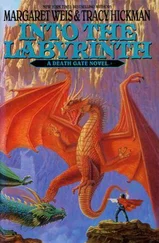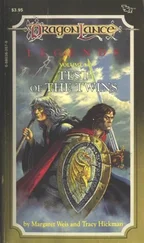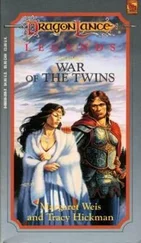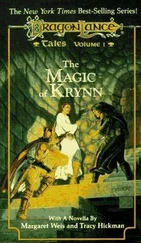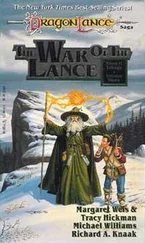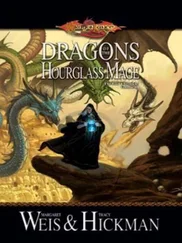Margaret Weis - Time of the Twins
Здесь есть возможность читать онлайн «Margaret Weis - Time of the Twins» весь текст электронной книги совершенно бесплатно (целиком полную версию без сокращений). В некоторых случаях можно слушать аудио, скачать через торрент в формате fb2 и присутствует краткое содержание. Жанр: Фэнтези, на английском языке. Описание произведения, (предисловие) а так же отзывы посетителей доступны на портале библиотеки ЛибКат.
- Название:Time of the Twins
- Автор:
- Жанр:
- Год:неизвестен
- ISBN:нет данных
- Рейтинг книги:5 / 5. Голосов: 1
-
Избранное:Добавить в избранное
- Отзывы:
-
Ваша оценка:
- 100
- 1
- 2
- 3
- 4
- 5
Time of the Twins: краткое содержание, описание и аннотация
Предлагаем к чтению аннотацию, описание, краткое содержание или предисловие (зависит от того, что написал сам автор книги «Time of the Twins»). Если вы не нашли необходимую информацию о книге — напишите в комментариях, мы постараемся отыскать её.
Time of the Twins — читать онлайн бесплатно полную книгу (весь текст) целиком
Ниже представлен текст книги, разбитый по страницам. Система сохранения места последней прочитанной страницы, позволяет с удобством читать онлайн бесплатно книгу «Time of the Twins», без необходимости каждый раз заново искать на чём Вы остановились. Поставьте закладку, и сможете в любой момент перейти на страницу, на которой закончили чтение.
Интервал:
Закладка:
“All this means is that I’ve got to get to this Fistandantilus before he gets to me,” he said to himself softly.
The great spires of the Temple looked down on city streets kept scrupulously clean—all except the back alleys. The streets were thronged with people. Temple guards roamed about, keeping order, standing out from the crowd in their colorful mantles and plumed helms. Beautiful women cast admiring glances at the guards from the corners of their eyes as they strolled among the bazaars and shops, their fine gowns sweeping the pavement as they moved. There was one place in the city the women didn’t go near, however, though many cast curious glances toward it—the part of the square where the slave market stood.
The slave market was crowded, as usual. Auctions were held once a week—one reason the bear-skin man, who was the manager, had been so eager to get his weekly quotient of slaves from the prisons. Though the money from the sales of prisoners went into the public coffers, the manager got his cut, of course. This week looked particularly promising.
As he had told Tas, there were no longer executions in Istar or parts of Krynn that it controlled. Well, few. The Knights of Solamnia still insisted on punishing knights who betrayed their Order in the old barbaric fashion—slitting the knight’s throat with his own sword. But the Kingpriest was counseling with the Knights, and there was hope that soon even that heinous practice would be stopped.
Of course, the halting of executions in Istar had created another problem—what to do with the prisoners, who were increasing in number and becoming a drain on the public coffers. The church, therefore, conducted a study. It was discovered that most prisoners were indigent, homeless, and penniless. The crimes they had committed—thievery, burglary, prostitution, and the like—grew out of this.
“Isn’t it logical, therefore,” said the Kingpriest to his ministers on the day he made the official pronoucement, “that slavery is not only the answer to the problem of overcrowding in our prisons but is a most kind and beneficent way of dealing with these poor people, whose only crime is that they have been caught in a web of poverty from which they cannot escape?
“Of course it is. It is our duty, therefore, to help them. As slaves, they will be fed and clothed and housed. They will be given everything they lacked that forced them to turn to a life of crime. We will see to it that they are well-treated, of course, and provide that after a certain period of servitude—if they have done well—they may purchase their own freedom. They will then return to us as productive members of society.”
The idea was put into effect at once and had been practiced for about ten years now. There had been problems. But these had never reached the attention of the Kingpriest—they had not been serious enough to demand his concern. Under-ministers had dealt efficiently with them, and now the system ran quite smoothly. The church had a steady income from the money received for the prison slaves (to keep them separate from slaves sold by private concerns), and slavery even appeared to act as a deterrent from crime.
The problems that had arisen concerned two groups of criminals—kenders and those criminals whose crimes were particularly unsavory. It was discovered that it was impossible to sell a kender to anyone, and it was also difficult to sell a murderer, rapist, the insane, etc. The solutions were simple. Kender were locked up overnight and then escorted to the city gates (this resulted in a small procession every morning). Institutions had been created to handle the more obdurate type of criminal.
It was to the dwarven head of one of these institutions that the bear-skin man stood talking animatedly that morning, pointing at Caramon as he stood with the other prisoners in the filthy, foul-smelling pen behind the block, and making a dramatic motion of knocking a door down with his shoulder.
The head of the institution did not seem impressed. This was not unusual, however. He had learned, long ago, that to seem impressed over a prisoner resulted in the asking price doubling on the spot. Therefore, the dwarf scowled at Caramon, spit on the ground, crossed his arms and, planting his feet firmly on the pavement, glared up at the bear-skin man.
“He’s out of shape, too fat. Plus he’s a drunk, look at his nose.” The dwarf shook his head. “And he doesn’t look mean. What did you say he did? Assaulted a cleric? Humpf!” The dwarf snorted. “The only thing it looks like he could assault’d be a wine jug!”
The bear-skin man was accustomed to this, of course.
“You’d be passing up the chance of a lifetime, Rockbreaker,” he said smoothly. “You should have seen him bash that door down. I’ve never seen such strength in any man. Perhaps he is overweight, but that’s easily cured. Fix him up and he’ll be a heartthrob. The ladies’ll adore him. Look at those melting brown eyes and that wavy hair.” The bear-skin man lowered his voice. “It would be a real shame to lose him to the mines... I tried to keep word of what he had done quiet, but Haarold got wind of it, I’m afraid.”
Both the bear-skin man and the dwarf glanced at a human standing some distance away, talking and laughing with several of his burly guards. The dwarf stroked his beard, keeping his face impassive.
The bear-skin man went on, “Haarold’s sworn to have him at all costs. Says he’ll get the work of two ordinary humans out of him. Now, you being a preferred customer, I’ll try to swing things your direction—”
“Let Haarold have him,” growled the dwarf. “Fat slob.”
But the bear-skin man saw the dwarf regarding Caramon with a speculative eye. Knowing from long experience when to talk and when to keep quiet, the bear-skin man bowed to the dwarf and went on his way, rubbing his hands.
Overhearing this conversation, and seeing the dwarf’s gaze run over him like a man looks at a prize pig, Caramon felt the sudden, wild desire to break out of his bonds, crash through the pen where he stood caged, and throttle both the bear-skin man and the dwarf. Blood hammered in his brain, he strained against his bonds, the muscles in his arms rippled—a sight that caused the dwarf to open his eyes wide and caused the guards standing around the pen to draw their swords from their scabbards. But Tasslehoff suddenly jabbed him in the ribs with his elbow.
“Caramon, look!” the kender said in excitement.
For a moment, Caramon couldn’t hear over the throbbing in his ears. Tas poked him again.
“Look, Caramon. Over there, at the edge of the crowd, standing by himself. See?”
Caramon drew a shaking breath and forced himself to calm down. He looked over to where the kender was pointing, and suddenly the hot blood in his veins ran cold.
Standing on the fringes of the crowd was a black-robed figure. He stood alone. Indeed, there was even a wide, empty circle around him. None in the crowd came near him. Many made detours, going out of their way to avoid coming close to him. No one spoke to him, but all were aware of his presence. Those near him, who had been talking animatedly, fell into uncomfortable silence, casting nervous glances his direction.
The man’s robes were a deep black, without ornamentation. No silver thread glittered on his sleeves, no border surrounded the black hood he wore pulled low over his face. He carried no staff, no familiar walked by his side. Let other mages wear runes of warding and protection, let other mages carry staves of power or have animals do their bidding. This man needed none. His power sprang from within—so great, it had spanned the centuries, spanned even planes of existence. It could be felt, it shimmered around him like the heat from the smith’s furnace.
Читать дальшеИнтервал:
Закладка:
Похожие книги на «Time of the Twins»
Представляем Вашему вниманию похожие книги на «Time of the Twins» списком для выбора. Мы отобрали схожую по названию и смыслу литературу в надежде предоставить читателям больше вариантов отыскать новые, интересные, ещё непрочитанные произведения.
Обсуждение, отзывы о книге «Time of the Twins» и просто собственные мнения читателей. Оставьте ваши комментарии, напишите, что Вы думаете о произведении, его смысле или главных героях. Укажите что конкретно понравилось, а что нет, и почему Вы так считаете.

